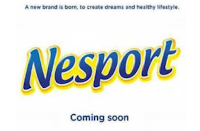Precedential No. 29: TTAB Sustains Opposition to Section 66(a) Application due to Lack of Bona Fide Intent
The Board sustained this opposition to a Section 66(a) application for the mark NESPORT for various products in classes 5, 30, and 32, including nutritional supplements, energy bars, and sports drinks, finding that Applicant Taboada lacked a bona fide intention to use the mark in commerce for the identified goods. Opposer Nestle mistakenly cited Section 1(b) as the statutory basis for its claim, rather than Section 66(a), but the Board found that this error was not fatal because the pleading had put Taboada on adequate notice. On the other hand, Taboada's lack of documentation evidencing a bona fide intent as of his filing date did prove fatal to his application. Société des Produits Nestlé S.A. v. Cándido Viñuales Taboada, 2020 USPQ2d 10893 (TTAB 2020) [precedential] (Opinion by Judge Jonathan Hudis).
Proper Pleading?: Section 66(a) requires that an applicant for extension of protection under the Madrid Protocol declare that he has a bona fide intention to use the subject mark in commerce. Opposer Nestle's notice of opposition referenced Section 1(b) rather than Section 66(a) in its claim that Applicant Taboada lacked the requisite bona fide intent. Both statutory provisions require a verified statement of bona fide intent.
The Board observed that "[c]itation of the incorrect statutory section in Opposer’s Notice of Opposition, however, is not fatal to Opposer’s claim." Although an opposition to a Section 66(a) application may not be amended to add grounds for opposition (Rule. 2.107(b), here the Board found that the claim of lack of bona fide intent was "sufficiently pleaded ab initio."
Although Opposer cited the wrong provision of the Trademark Act, it was in this case sufficient to provide notice of the ground for opposition. There is no leapfrog from one legal claim to another.
Lack of Bona Fide Intent: The Board first observed that the same case law applies to the bona fide intent issue under Section 66(a) as under 1(b). See Honda Motor Co.v. Winkelmann, 90 USPQ2d 1660, 1662 (TTAB 2009).
Applicant Taboada confirmed in discovery responses that the mark NESPORT had not been used in commerce, and that he had no advertising or promotional expenditures except for his website. He had no assignees or licensees, no agreements with potential manufacturers, no documents regarding attempted regulatory approval or attendance at trade shows, and no anticipated packaging or labels.
Taboada stated that he held off from developing his business pending the outcome of this opposition and others overseas. As support for his alleged bona fide intent, Taboada pointed to his U.S. trademark application, numerous trademark filings and domain name registrations throughout the world, his website, and documents from an Australian opposition involving Nestle.
In his testimonial declaration, Taboada discussed his 20 years of experience in sales and marketing in the food and beverage industry, and his studies in California and Spain, where he made high-level business contacts. His documentation consisted of a business plan, cost estimates, mass e-mails to U.S. manufacturers and distributors, and updates to his website, all occurring in 2018 (after the commencement of this proceeding).
The Board pointed out once again that the mere act of filing an application does not suffice to establish a bona fide intent. A lack of documentary evidence may be rebutted if the applicant can show a capacity to market and manufacture the identified goods consistent with the expansion of its existing product line. Furthermore, although evidence dated prior to applicant's filing date is the strongest evidence, evidence after the filing date may also be considered if sufficiently contemporaneous.
The Board found that Opposer Nestle made a prima facie showing of lack of bona fide intent. Taboada provided no evidence of his capacity, expertise, or infrastructure to produce and distribute the wide range of products in his application (including pharmaceuticals, teeth filling and dental impression materials, vermin control products, herbicides, and various foods and beverages). Although his application was filed in 2016, his discovery responses in 2017 indicated his lack of documentation and pertinent activities.
Nestle submitted the results of its investigation showing an absence of a social media presence for the NESPORT mark. Moreover, Taboada's various registered domain names either were not operational or merely resolved to his
Not until 2018 did Taboada make any real effort to commercialize the NESPORT mark via a business plan, cost estimates, and mass e-mails to U.S. manufacturers and distributors. However, the business plan lacked sufficient detail to demonstrate a bona fide intention to introduce NESPORT products into the marketplace. According to the plan, Taboada would proceed with the development of his business after securing his trademark registration.
Conclusion: The Board found that Taboada's activities in 2018 were not sufficiently contemporaneous with the filing of his trademark application, and were not sufficiently extensive or focused, to establish his bona fide intention to use the NESPORT mark in commerce in 2016, when his application was filed. Taboada's litigations with Nestle did not excuse him from his burden to rebut Nestle's prima facie case arising from his lack of documentation.
Therefore the Board sustained the opposition on that ground.
Read comments and post your comment here.
TTABlogger comment: The bona fide intent issue seemed pretty straightforward. The discussion of the pleading issue, and the fact that this case proceeded under the ACR regime, led to the "precedential" tag apparently
Text Copyright John L. Welch 2020.






0 Comments:
Post a Comment
<< Home